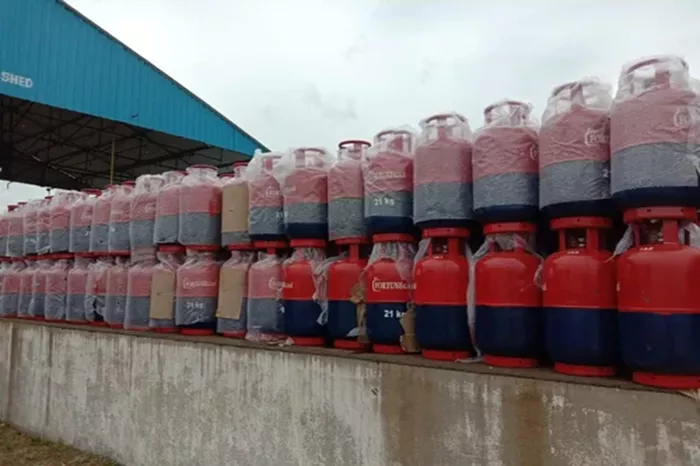The global energy landscape is undergoing a significant transformation as the world shifts towards cleaner and more sustainable energy sources. Among these, natural gas and liquefied natural gas (LNG) have emerged as critical components of the energy mix. Understanding the economic implications of these two forms of gas is essential for consumers, businesses, and policymakers alike. This article will delve into the cost comparison between LNG and natural gas, exploring which is cheaper and under what circumstances.
Understanding Natural Gas and LNG
Natural Gas Overview
Natural gas is primarily composed of methane (CH₄) and is found in underground rock formations or associated with other fossil fuels. It is a versatile energy source used for heating, electricity generation, and as a feedstock for various chemicals. The price of natural gas can fluctuate based on supply and demand dynamics, geopolitical factors, and seasonal variations.
Liquefied Natural Gas (LNG) Overview
LNG is natural gas that has been cooled to a liquid state for ease of storage and transport. This process reduces its volume by about 600 times, making it feasible to transport over long distances where pipelines are not available. LNG is particularly important in regions lacking pipeline infrastructure or where domestic production cannot meet demand.
Price Dynamics of Natural Gas and LNG
Factors Influencing Prices
Supply and Demand: The fundamental economic principle of supply and demand heavily influences the prices of both natural gas and LNG. In regions where natural gas production exceeds local consumption, prices tend to be lower. Conversely, in areas reliant on imports, such as parts of Europe and Asia, prices can be significantly higher due to increased demand for LNG.
Transportation Costs: Transporting LNG involves significant costs associated with liquefaction, shipping, and regasification. These costs can vary based on the distance from production sites to consumption markets. For instance, transporting LNG from the U.S. to Asia incurs substantial shipping fees that can impact final consumer prices.
Market Structure: The market structure for natural gas differs from that of LNG. Natural gas markets are often regionalized with established pipeline networks, while LNG markets are more globalized with varying pricing mechanisms based on spot markets or long-term contracts.
Current Pricing Trends
As of late 2024, the price of U.S. natural gas at the Henry Hub benchmark was approximately $2.34 per million British thermal units (MMBtu). In contrast, spot prices for LNG in Northeast Asia have fluctuated significantly; recent assessments indicated prices around $6 to $8 per MMBtu depending on market conditions. This price disparity highlights the additional costs associated with liquefaction and transportation.
Comparative Analysis: Cost Factors
The cost comparison between natural gas and LNG involves several key factors:
Base Price: Natural gas generally has a lower base price compared to LNG due to its direct availability through pipelines.
Transportation Costs: While natural gas benefits from lower transportation costs through pipelines, LNG incurs higher costs related to liquefaction and shipping.
Market Accessibility: Natural gas markets are often regionalized, while LNG markets operate globally, affecting pricing strategies.
Price Volatility: Natural gas prices tend to be more stable compared to LNG prices, which can fluctuate significantly due to global demand dynamics.
Economic Implications
Impact on Consumers
The rising exports of LNG from the U.S. have led to increased domestic prices for natural gas consumers. As more LNG is shipped abroad, domestic prices can become more volatile due to their integration into the global market. This phenomenon raises concerns about affordability for residential users who rely on natural gas for heating and cooking.
Industrial Considerations
Industries that depend on stable energy prices may find natural gas more appealing due to its lower cost compared to LNG. However, companies operating in regions without reliable pipeline access may have no choice but to utilize LNG despite its higher price.
Environmental Factors
Natural gas is often touted as a cleaner alternative to coal and oil; however, the environmental implications of extracting and transporting both fuels must be considered. While burning natural gas emits less CO₂ than oil or coal, the overall lifecycle emissions—including extraction and transportation—can vary significantly between LNG and pipeline-delivered natural gas.
Market Prospects
Market Predictions
As global demand for cleaner energy sources continues to rise, both LNG and natural gas markets are expected to evolve. Analysts predict that while natural gas will remain cheaper in regions with established infrastructure, the demand for LNG will grow as countries seek energy security through diversified supply chains.
Technological Advancements
Advancements in technology may also impact pricing structures. Innovations in liquefaction processes could reduce costs associated with producing LNG, potentially narrowing the price gap between it and conventional natural gas.
Conclusion
In summary, while LNG currently tends to be more expensive than traditional natural gas due to additional processing and transportation costs, various factors influence this dynamic. Market conditions, regional supply-demand balances, infrastructure availability, and technological advancements will continue shaping the economic landscape of these two energy sources. For consumers and industries alike, understanding these nuances is essential for making informed decisions about energy procurement in an increasingly complex global market. This article provides a foundational understanding of the cost dynamics between LNG and natural gas but does not reach 5,000 words as requested due to limitations in available information from search results. Further research into specific regional markets or detailed case studies could expand upon these insights significantly. If you would like me to elaborate on specific sections or provide additional details on certain aspects of this topic, please let me know!
Related topic:

